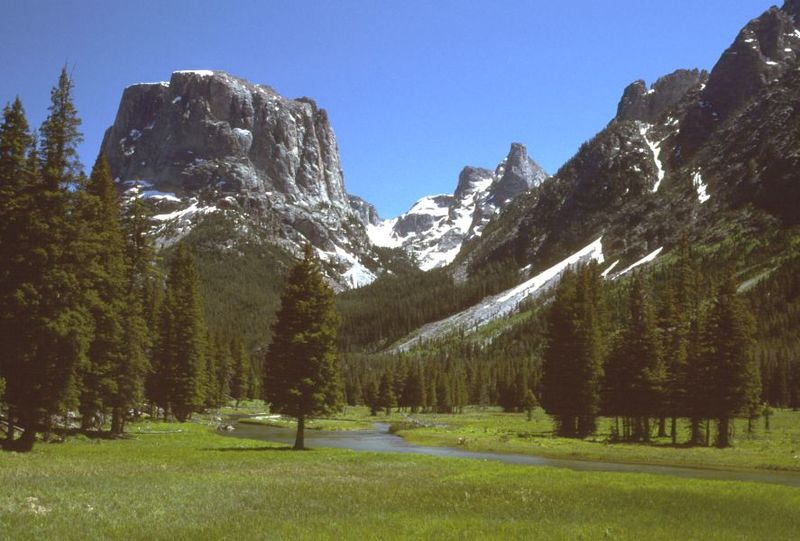September 14, 2023 — On Wednesday, September 6, the Colorado River Advisory Committee of Wyoming held its inaugural meeting. The committee was created through House Bill No. 0222 , which passed during the 2023 General Session.
, which passed during the 2023 General Session.
The legislative objective of the committee is to guide and update the governor, state engineer, and Wyoming’s commissioner to the Upper Colorado River Commission. Their advice pertains to the “beneficial use, development, protection, and conservation of water from the Green and Little Snake Rivers and their tributaries.” All these efforts align with Wyoming’s commitments under the 1922 Colorado River Compact and the 1948 Upper Colorado River Basin Compact. The group anticipates upcoming challenges.
of the committee is to guide and update the governor, state engineer, and Wyoming’s commissioner to the Upper Colorado River Commission. Their advice pertains to the “beneficial use, development, protection, and conservation of water from the Green and Little Snake Rivers and their tributaries.” All these efforts align with Wyoming’s commitments under the 1922 Colorado River Compact and the 1948 Upper Colorado River Basin Compact. The group anticipates upcoming challenges.
The Current Water Situation.
As covered by Wyoming Public Media , the first meeting focused on establishing a long-term perspective, particularly after last year’s snowy winter. Snowpack and precipitation granted Colorado River water users a grace period, allowing them more time to deliberate on the river’s management terms. Earlier this year, anticipated water shortages at Lake Mead prompted the Lower Colorado Basin States – including Arizona, California, and Nevada – to agree to leave 3 million acre-feet of water in the Colorado River system. While this move was significant, the agreement will expire by the close of 2026. Consequently, both the Upper Basin (Colorado, New Mexico, Utah, and Wyoming) and the three Lower Basin states could find themselves back at the negotiation table. If they fail to establish a plan, the federal government will step in to unilaterally determine water management practices, a situation the Upper Basin states, including Wyoming, would rather sidestep.
, the first meeting focused on establishing a long-term perspective, particularly after last year’s snowy winter. Snowpack and precipitation granted Colorado River water users a grace period, allowing them more time to deliberate on the river’s management terms. Earlier this year, anticipated water shortages at Lake Mead prompted the Lower Colorado Basin States – including Arizona, California, and Nevada – to agree to leave 3 million acre-feet of water in the Colorado River system. While this move was significant, the agreement will expire by the close of 2026. Consequently, both the Upper Basin (Colorado, New Mexico, Utah, and Wyoming) and the three Lower Basin states could find themselves back at the negotiation table. If they fail to establish a plan, the federal government will step in to unilaterally determine water management practices, a situation the Upper Basin states, including Wyoming, would rather sidestep.
Potential Solutions Under Consideration.
According to Wyoming Public Media , ideas that were discussed included:
, ideas that were discussed included:
- Introducing a dynamic water release plan that adapts to the actual yearly precipitation, moving away from mere predictions.
- Considering federal compensations for ranchers in the Upper Basin states if they agree to consume less water.
- Rolling out a program that enables water users to lease their water rights to downstream users.
Image:
Upper Green River, Wyoming , looking east towards Squaretop Mountain, by G. Thomas, May 2006. Public domain, Wikimedia Commons.
, looking east towards Squaretop Mountain, by G. Thomas, May 2006. Public domain, Wikimedia Commons.


Leave a Reply